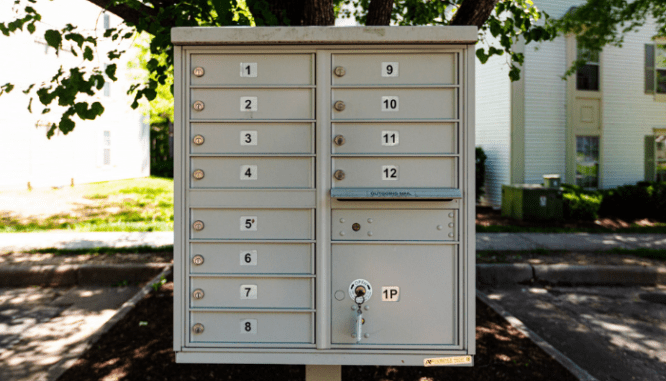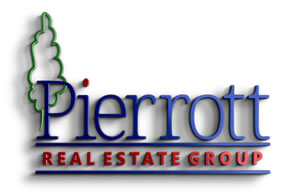When most homeowners are following their HOA’s rules, it can benefit the entire neighborhood — but what happens when one or two neighbors decide the rules don’t apply to them? What does the HOA do in a situation where someone is breaking the rules, and how can HOAs enforce rules they’ve outlined?
If you live in the United States and own a newer home, then you’re probably part of the 73.9 million Americans who live in a community association or planned community. In 2020, a vast majority (94%) of homeowners feel their association’s rules protect and enhance property values, according to the Foundation for Community Association Research.
As a current or future homeowner, you might be curious about how an HOA can enforce its rules, and what it means for (potentially) you. We talked to experts to get you some answers!

Time to do some reading
Your HOA has a set of rules outlined in documents called CC&Rs, or covenants, conditions and restrictions, which were created when the HOA was originally formed.
These rules provide guidelines around everything from pets, fences, basketball hoops, and paint colors to garbage cans or whether your home can be used as a vacation rental. Basically, the clean and attractive look and feel that first charmed you comes from a set of predetermined rules that were set in place when the community was first built by a developer.
Within these documents, you will find other information about how your neighborhood runs. There will be a section regarding how the fees and dues they collect are used. There will also be a section outlining the ways in which homeowners can volunteer their time to work with the HOA, down to electing area representatives and board members. In addition to that, you can find information about the liability and insurance needs the community has, the exact description of all community areas and amenities, and so on. This set of documents also outlines how the HOA enforces its rules.
You’ll usually have a chance to review your HOA documentation as a homebuyer when you go under contract for a property. Many real estate agents recommend you read the CC&Rs to understand the responsibilities of owning a home within a specific HOA before you close on your new house.
“Usually the original set of rules for the HOA will come from the developer for the community,” says Krista Baker, a certified Community Association Manager with Advanced Management of Colorado. “Each state has statewide rules they have to follow. In Colorado, we follow the Colorado Common Interest Ownership Act, which regulates all associations in the state.”
The most common rules in an HOA
Some of the property value of your home has to do with its surroundings and atmosphere. The HOA regulations in your neighborhood set the minimum standards homeowners have to follow to help preserve that value.
Most of the rules that HOAs have to enforce wind up dealing with the following issues.
How you behave in common areas
“Because the communal property is shared between all the homeowners, it’s everybody’s responsibility to maintain those,” says Santiago Valdez, a real estate agent in Chicago.
So you can expect all pools, gyms, club rooms, and recreational facilities to have a strict schedule, a guest policy, an alcohol policy, and profanity policy to help keep the community spaces clean and safe for everyone.
Rentals
Whether it’s full-time rentals or vacation rentals like Airbnb, most associations have regulations around the percentage of homes within the community that can be used as rentals and vacation rentals. In some of them, renting is not an option at all.
According to Valdez, rental restrictions are constantly evolving, and this is one area of regulation that can sometimes change within the CC&Rs.
Vehicles
These regulations deal with what kind of vehicles are allowed and not allowed within the community — for example, can recreational campers be parked or stored on the property? Vehicle regulations may also touch on how they need to be stored and how frequently they need to be moved; many HOAs won’t allow you to park cars on the road in front of your home for more than a certain number of hours, for example.
Pets
Your choice of pets can be regulated: type of animal, breed, size, weight, or number of pets in total.
“I always recommend my clients double-check on the allowed sizes for pets in an HOA-controlled community,” says Valdez.
Upkeep and appearance
One of the biggest perks of living in an HOA is making sure your neighbor’s beater car will never be an unsightly problem for you.
Similarly, most communities have rules around when trash bins can be put outside, and when you have to bring them back inside after trash day. Part of these rules can include paint colors for trim, fence height, and even how many political signs you can display leading up to an election.

How does the HOA notify homeowners of broken rules?
As part of the CC&Rs, the association will have what is called a “covenant enforcement policy,” which spells out the exact process the community manager follows when sending violations to homeowners.
“In the state of Colorado, a covenant enforcement policy is required by law. Because the most important rule of HOAs is that every homeowner must be treated exactly the same,” according to Baker.
In some places, the first notice is a warning sent by both email and postal mail.
In other parts of the country, associations opt to jump straight to fining violators, as is the case in Chicago, where Valdez says he’s had clients being notified while moving in that their movers were working outside the three-hour block of time that had originally been reserved. In that case, the homeowner had to pay for additional moving time in the loading bay as well as a fine from the HOA for violating its policies.
The violation leads to a fine
Depending on the time period established in the CC&Rs, you will typically have a certain amount of time to comply before your violation incurs fines — though as noted above, some HOAs will start accruing your fines as soon as they hear about the violation. Usually, a second or third letter will be sent to escalate the situation and warn the homeowner of the fine being incurred.
“In Colorado, before we can assess a fine to the homeowner account, our letters have to offer the homeowner a chance to meet with the board of directors to find a resolution to the problem,” explains Baker.
Most fines start at $25 and increase depending on whether they go unpaid or unresolved for an extended period of time. They can grow exponentially higher when some associations opt to increase the fine for every calendar day the violation is unresolved.
A hearing with the board of directors is usually a meeting where the homeowner explains the reason behind the violation, and the board of directors has an opportunity to vote to take a certain action to help resolve the issue.
For example, a board of directors can choose to close an open violation regarding drainage water if the homeowner can prove the water draining is not coming from their home.
Conduct an official hearing with the HOA board of directors
When you’re facing a meeting with your HOA board of directors to address an open violation, you should prepare by following these steps.
Know the rules
Become familiar with your HOA CC&Rs, including any design guidelines and other documents. Make sure you understand the violation and which rules were broken.
Be pleasant and professional
Odds are good that your board members are also your neighbors, and they are working as volunteers. Setting a respectful tone helps you be heard.
Take notes
Make sure you keep written notes of your meeting, and if necessary, follow up in writing. A paper trail is helpful if the issue is not resolved, or if things need to escalate.
Don’t argue about the rule itself
While you might disagree with how the rule was written, the HOA is simply enforcing what was outlined in the documents. The personal opinion of each board member doesn’t have a lot of bearing on the outcome, and there are other ways to address rules that you don’t like (more on that later).
Understand the penalties
If you’re unclear on what’s at stake, ask questions about how the penalties, fines, and fees work.
Keep paying your dues
Don’t allow yourself to fall behind on your monthly or quarterly payments, as well as any late charges that might be lurking. While you go through the steps of scheduling a hearing and waiting for a decision, other penalties might accrue, which would mean you have even more problems to resolve.

Can the HOA take matters into their own hands?
Sometimes the violation can be resolved with a direct action from the HOA. If you want to know whether your HOA has a right to enter your property in order to assess or resolve a violation, you should check your CC&Rs and your covenant enforcement policy.
For example, the HOA could decide to have a front yard mowed to immediately resolve an unsightly front yard violation. In Colorado, that step would never happen without having a consultation with an attorney, Baker explains. Most associations will be very wary of accidentally trespassing on private property.
What happens after fines are accrued?
In some instances, the HOA can revoke privileges — restricting or suspending access to amenities, stopping any community news and updates to the violator, or preventing access to certain community-paid services (such as trash pickup for homeowners who consistently dump more garbage than the contract allows).
In other instances, the HOA will continue assessing fines until the account is assigned to a collection agency for payment; at this point, the violation becomes detrimental to the homeowner by affecting their credit rating.
Can the HOA take legal action against a homeowner?
Perhaps surprisingly, HOAs are not very interested in going to court. Most associations will try to resolve problems amicably and ask a homeowner to sit in for arbitration in order to resolve disputes.
However, if the amount accrued in fines is large enough, the state and CC&Rs allow for the HOA to sue the homeowner to obtain a judgement resolution to the problem.
“The most drastic resolution I have seen to unpaid fines is with an HOA taking ownership of the unit and forcing a foreclosure, or enacting a lien on the property so they can recoup their fees and assessments.”
What happens if I disagree with the rules?
As long as the HOA is evenly enforcing the rules for all homeowners, there’s nothing an individual homeowner can do to have the rules changed.
However, there are ways written into the CC&Rs through which a single homeowner can either get in front of the board of directors to communicate the issue and seek a resolution; scheduling a hearing is always a great first step to have your voice heard.
If after a hearing, you feel the board of directors doesn’t understand your issue, or doesn’t feel inclined to vote on a rule change, you can always organize with other homeowners in the community to lobby for someone to be voted into the board of directors to represent your interests.
“The quickest way to enact change into the HOA is to volunteer your time and learn how the community runs, so you can enact change from within,” says Baker. You will get to know your neighbors and their problems, but it can also be very satisfying to spend time making your community better for everyone.
What if the HOA rules are being unfairly applied to me?
When asked about this, Baker says that any homeowner who feels unfairly targeted by the HOA should attend a board meeting or hearing to discuss the matter with the board of directors.
One of the most important responsibilities of board members within an HOA is that rules must be enforced uniformly across the entire community.
If you feel that the rules are being unfairly applied to you, and you have had the opportunity to discuss the issues with the board of directors with no change in the situation, then you can consider contacting an attorney with experience in dealing with HOAs to review your complaint.
In any case, keeping pristine records of all your exchanges and communications with your community manager and board of directors will help your case.

What if the association isn’t fulfilling its obligations?
Together with treating all homeowners equally, the HOA is also responsible for making informed decisions when voting in community matters, always acting in the best interest of the association as a whole, and fulfilling its functions within the authority that has been outlined in the CC&Rs.
If you have an instance where you and your neighbors can document how your HOA is falling short of fulfilling its obligations and responsibilities, you should do the following:
- Attend as many HOA meetings as you can. Becoming very familiar with the board members and the topics that get discussed will help you raise concerns.
- Read your CC&Rs. You cannot change a set of rules you don’t understand. Make sure you get a recent copy of your CC&Rs and familiarize yourself with all the processes your HOA uses to run your community.
- Keep records. Download the meeting minutes, save email copies, and create a folder of pertinent information.
- Participate in your HOA elections. Whether you decide to run as a candidate, or you make sure you meet and understand the positions of all the available candidates for an open position, doing your due diligence as a homeowner can help problematic board members be replaced with better ones.
- Amend the CC&Rs. In most cases, the board of directors is able to make amendments to the rules. It can be complicated, but you can check your CC&Rs for the exact process that needs to be followed to incorporate an amendment.
- Take legal action. A legal suit may be in the cards if the HOA is acting in an unreasonable or discriminatory manner. However, lawsuits against an HOA are typically costly and complicated.
Can you dissolve an HOA?
Yes, you can dissolve an HOA. But it’s a lot of work and can be very expensive. Not only that, but it could take years and thousands of dollars, after which a final approval is not guaranteed.
Besides that, you should always take into consideration the benefits of having an HOA in place:
- Having an HOA positively affects your home value. On average, homes in 2019 that sold within an HOA got a 4% premium (or $13,500) more than similar homes sitting outside of HOAs.
- Around 80% of newer homes in the United States are now located within an HOA.
- HOAs offer a conflict resolution mechanism for neighborhood disputes.
- You often get built-in features and amenities, including opportunities for healthy living like pool, golf, or gym, plus the socializing factor of hosting community gatherings like yard sales, cookouts, and block parties.
If you’re not clear on how an HOA (or your HOA) can enforce its rules, pull up your CC&Rs, read them over clearly, and then talk to an expert (like your real estate agent) about how best to answer your specific question.
Header Image Source: (Avi Waxman / Unsplash)

